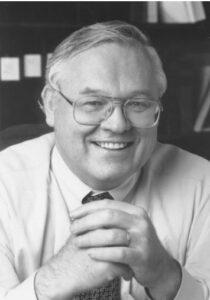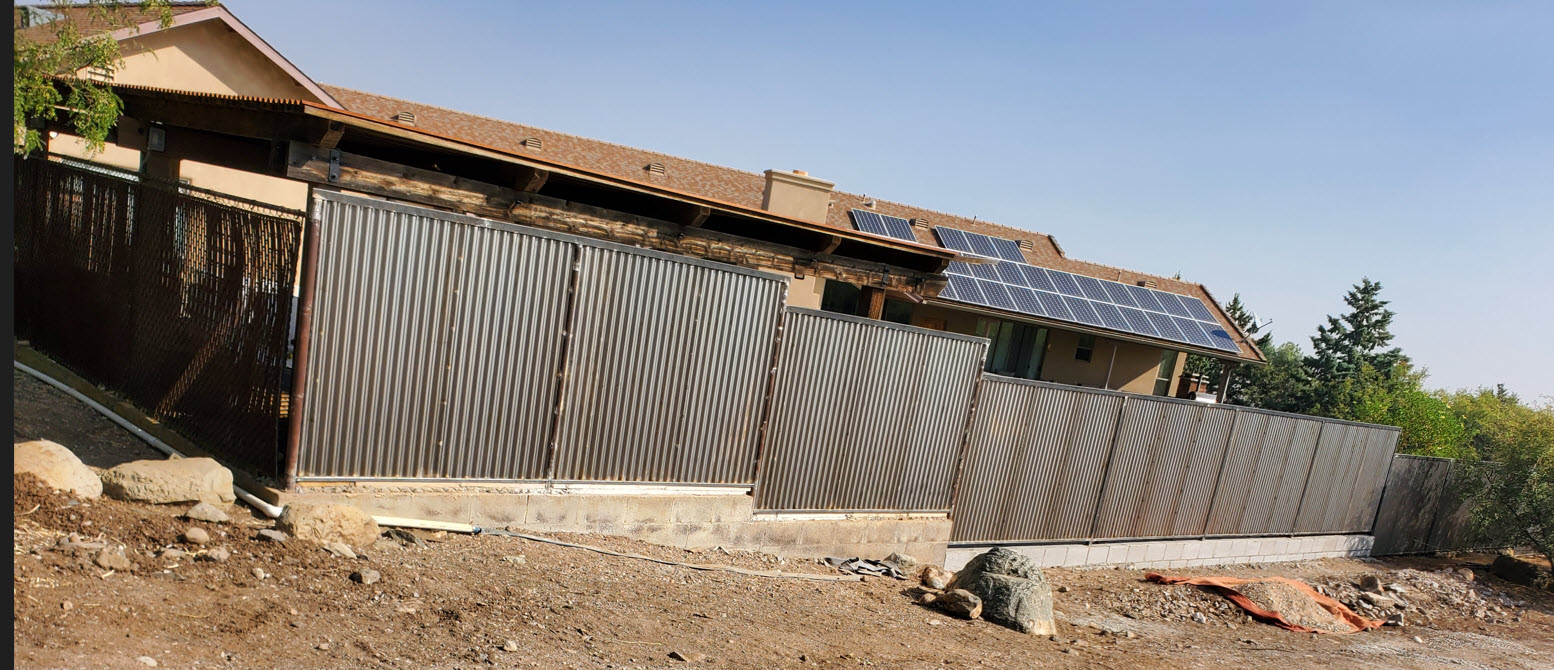Author Archive for R. Oliphant – Page 23
WINE AND DINE ANNUAL EVENT ON VERDE VALLEY CAMPUS RAISES $50,000 TO SUPPORT STUDENT SCHOLARSHIPS AND THE COLLEGE’S VITICULTURE & ENOLOGY PROGRAM
T
Battered Child Syndrome Battered Child Syndrome (BCS) transcends societal boundaries and can be encountered across all strata of society. Nevertheless, its prevalence may be notably higher in households with lower income levels. Such households often grapple with heightened stress, social challenges, and a reduced capacity to manage stressful situations effectively. Several risk factors contribute to the occurrence of BCS, including limited educational opportunities, single parenthood, and the presence of alcoholism or other substance addictions among caregivers. Child abuse typically occurs when the abuser is overwhelmed by anger or undergoing periods of heightened stress. Common triggering events that precede assaults on children involve persistent crying or whining by infants or children, perceived excessive fussiness in an infant or child, struggles with a toddler’s toilet training, and exaggerated interpretations of a child’s perceived acts of disobedience. Cultural traditions can also play a role in fostering abuse, perpetuating beliefs that children are mere property, that parents (particularly males) possess absolute authority over their children’s upbringing, and that toughening children through harsh treatment prepares them for life’s challenges. It is crucial to recognize that many child abusers themselves endured abuse during their childhood, often leading to a misguided belief that abuse is an appropriate disciplinary method. Additionally, these individuals may struggle with poor impulse control and a lack of comprehension regarding the consequences of their actions.
Poorly maintained maintenance road separates neighbors and park, may face future sewer environmental issues | Board and College should have listened to Paul Chevalier who represented the District where the Verde Valley Campus is located when the issue came up for brief discussion last year, not ignore him

Editor: Robert E. Oliphant
EDITORIAL: The decision to construct a small 10-space trailer park on the Yavapai Community College’s Verde Campus, right next to the backyards of Clarkdale homeowners, is nothing short of a colossal blunder. This is particularly concerning because the only barrier separating the private homes’ backyards from the trailer park located a few feet away is the College’s poorly maintained maintenance road.
Already, this decision has compelled some neighbors to take matters into their own hands by putting up a substantial metal privacy/security fence to create a barrier between themselves and the trailer park. As apparent from photos contained in a previous Blog post, construction of the fence must have caused neighbors to expend a lot of extra money to guarantee security and privacy because of the College’s location decision. (Click here to see earlier Blog story and photos of fence.)
What’s even more baffling about the location decision is the fact that there are an estimated whopping 50-60 acres of undeveloped land owned by the College immediately adjacent to the main Campus buildings. These vast, unused expanses were readily available for the creation of a small trailer park. Opting to place the trailer park in a location away from the back yards of Clarkdale neighbors would have not only shown respect for the neighborhood but also provided a location with significantly fewer potential problems.
One cannot help but question whether the planners gave any serious thought to the choice of location and the myriad challenges that come with locating a trailer park in such close proximity to a residential neighborhood. Can the College reasonably expect anything but a chorus of future complaints about noise, putrid smells coming from the large septic system, lighting, dogs barking, and litter strewn about the ground stemming from this decision? In addition to these concerns, some residents are already beginning to view the results of the extra-frugal investment in constructing the current trailer park as a Campus eyesore.
During his tenure as the District Governing Board representative, Mr. Paul Chevalier cautioned both the Board and the College executives against proceeding with this particular endeavor. Regrettably, his warning fell on deaf ears.
What’s even more disheartening is that not only were Mr. Chevalier’s concerns disregarded, but the College initiated construction of the park in March 2022 without his involvement or even his awareness. Astonishingly, the matter was never subjected to a specific budgetary vote by the Governing Board. This oversight failure occurred as the executives based in Prescott, who hold sway over all decisions affecting the Verde Valley Campus, deemed the construction cost associated with building the park inconsequential and unworthy of a detailed discussion or a specific vote.
Yet another potential future problem has been spawned by the incredibly ill-advised decision to construct a substantial septic system for use in disposing of waste coming from the trailer park. It would have been far more prudent to consider connecting to Cottonwood’s convenient sewer system, or even directly connecting with the main Cottonwood sewer plant, which is located is a mere mile or so from the border of the Campus property.
The planners ought to have been acutely aware of the environmental situation of the eleven thousand inhabitants of the Verde Villages, and that portions of the Verde Villages almost abut the College’s property. In response to their own concerns, the Verde Villages residents have convened a committee to deliberate on the fate of their hundreds of home and business septic systems. They’ve received expert advice indicating that while they may not currently be in violation of the Clean Water Act of 1972, it’s not a question of “if” but “when” they will be. Experts have underscored that the Environmental Protection Agency is deeply concerned about per- and polyfluoroalkyl substances, durable chemicals that degrade extremely slowly and are present in the effluent associated with septic systems.
The College’s septic tanks dug into the ground for the trailer park will only exacerbate the ongoing concerns in this area related to groundwater pollution.
It’s natural for Sedona/Verde Valley residents to wonder whether the Community College executives genuinely care about their area or if their primary focus is on the annual excess tax revenue generated by property owners in Sedona and the Verde Valley that can used on Prescott/Prescott Valley projects. The establishment of this tiny trailer park for students and faculty is just one of the decisions that raise doubts about the College’s commitment to Sedona and the Verde Valley. If anything, it highlights the urgent need for total local engagement, control, and decision-making when it comes to the residents of Sedona, the Verde Valley, and the Yavapai Community College Verde Valley Campus and Sedona Center.
YAVAPAI COMMUNITY COLLEGE ATHLETIC DEPARTMENT RECEIVED $1.2 MILLION ENDOWMENT GIFT IN 2022
Gift Revealed at the October 16th Board Meeting, No Additional Details Provided
 During the Yavapai Community College District Governing Board meeting held on October 16, 2023, it was revealed that a substantial gift was made to the Athletic Department a year earlier. In 2022, a benefactor generously established an endowment of $1.2 million to support the Department.
During the Yavapai Community College District Governing Board meeting held on October 16, 2023, it was revealed that a substantial gift was made to the Athletic Department a year earlier. In 2022, a benefactor generously established an endowment of $1.2 million to support the Department.
The revelation came during a presentation to the Board about the Athletic Department’s fundraising efforts by Rodney Jenkins, the College’s Vice President of Community Relations & Student Development. Mr. Jenkins did not divulge the identity of the donor or provide any other details, adding an element of mystery to this philanthropic gesture.
While the precise intention behind this sizable donation remains undisclosed, there is speculation that the endowment may have been earmarked to start up a women’s basketball team. Notably, 2022 marked the launch of the women’s basketball program, making this donation instrumental in its emergence.
CLARKDALE RESIDENTS WITH COMMUNITY COLLEGE TRAILER PARK ALMOST IN THEIR BACK YARD ERECT METAL-APPEARING PRIVACY/SECURITY FENCE
Yavapai Community College’s planners astonishingly located a 10-space trailer park adjacent to backyards of Clarkdale residents, which are separated from each other only by a poorly maintained maintenance road. Meanwhile, a location on about 80 available vacant acres on the Campus with easy travel trailer access could have been chosen with no impact on Clarkdale residents

Home almost directly across from Community College trailer park.
The decision made by Yavapai Community College executives, who are based in Prescott, regarding the location of the trailer park on the Verde Valley Campus in Clarkdale raises major concerns about their consideration for the neighboring residents. While the College may have had its reasons for selecting the odd location for the park, presumably related to financial considerations, it is apparent that little thought was given to respecting the privacy and well-being of the immediate neighborhood.
 It is truly astonishing that the trailer park was situated in such close proximity to the backyards of private homes in Clarkdale. This location choice appears both puzzling and, at worst, ignorant. There were clearly numerous readily accessible vacant acres on the Campus far from the neighborhood, which if chosen would have had no adverse impact on the lives of Clarkdale residents.
It is truly astonishing that the trailer park was situated in such close proximity to the backyards of private homes in Clarkdale. This location choice appears both puzzling and, at worst, ignorant. There were clearly numerous readily accessible vacant acres on the Campus far from the neighborhood, which if chosen would have had no adverse impact on the lives of Clarkdale residents.
In response to this seemingly ill-conceived placement, it is evident that affected neighbors have taken matters into their own hands. Some have chosen to erect a substantial metal-like privacy and security fence as a means of shielding themselves from the College’s trailer park, which they seemingly perceive as unattractive and disruptive.
While the exact cost of installing these fences remains unclear, one can reasonably surmise that it is a significant expense. The fact that residents are willing to invest in such measures underscores the inadequacy of the chosen location for the trailer park. Residents undoubtedly feel compelled to take these steps in order to safeguard their privacy and maintain their quality of life.
VERDE VALLEY CAMPUS 10-SPACE TRAILER PARK STILL UNDER CONSTRUCTION AFTER NINE MONTHS
Four trailers parked on lot: no sign of promised RVs
The construction of Yavapai Community College’s Verde Campus 10-space trailer park is still ongoing. As a reminder, this small facility project commenced in March on an unused portion of the vacant 80-acre parcel of land owned by the College within the Verde Valley Campus.
Since the start of the fall semester, only four travel trailers have appeared on the premises.
Back in March, the College made a commitment to acquire and place four recreational vehicles in the park for rental purposes. The goal was to purchase them and have them ready for rental by faculty or students by the beginning of the fall semester. However, as of October 23, there are no signs of these vehicles being present at the park.

VERDE VALLEY CAMPUS TRAILER PARK SHOWING THREE OF FOUR TRAILERS PARKED ON IT AS OF OCTOBER 23.
YAVAPAI COMMUNITY COLLEGE HIRES DR. DOUG BERRY, CURRENT MARICOPA COMMUNITY COLLEGE DEAN OF LIBERAL ARTS AND SCIENCES, AS NEW PROVOST
Responsible for planning, directing, evaluating, and providing oversight of the Academic Affairs division of the College and will begin December 1. Third recent executive leadership hire

Copyright © Robert E. Oliphant
On October 19, Yavapai Community College made an official announcement regarding the appointment of Dr. Doug Berry as the new Provost. Dr. Berry presently holds the position of Dean of Liberal Arts and Sciences within the Maricopa County Community College District. Prior to this role, he served as the Interim Vice President of Academic Affairs at Paradise Valley Community College, where he was responsible for the comprehensive planning, direction, evaluation, and oversight of the Academic Affairs division of the College.
Berry is the latest addition to Yavapai Community College’s roster of recently appointed executive leaders. He takes over the position previously held by Dr. Diane Ryan, who resigned in June. Notably, Dr. Ryan was designated as a “Vice President” within the College’s administrative structure, despite her responsibilities seeming quite similar to those now assumed by Doug Berry. The reason for this title change remains unclear.
recently appointed executive leaders. He takes over the position previously held by Dr. Diane Ryan, who resigned in June. Notably, Dr. Ryan was designated as a “Vice President” within the College’s administrative structure, despite her responsibilities seeming quite similar to those now assumed by Doug Berry. The reason for this title change remains unclear.
Berry will join the Community College’s Executive Leadership Team and will be responsible for overseeing various academic areas, including business and professional programs, visual and performing arts, humanities, English, social sciences, mathematics, science, and computer science. Additionally, he will have oversight of academic operations such as instructional support, scheduling, YC libraries, and academic initiatives like Open Education Resources, among other responsibilities.
Berry’s academic qualifications include earning his Ph.D. in General Psychology with a research emphasis in Emotional Intelligence and Team Cohesion from Capella University, his M.A. in Sports and Exercise Psychology from Argosy University, and his B.A. in Psychology from Olivet Nazarene University.
He begins his job December 1.
YAVAPAI COMMUNITY COLLEGE LAUNCES ITS SECOND ALL ONLINE BACHELOR DEGREE PROGRAM
Provides an opportunity to obtain a Bachelor of Science Degree in Nursing, RN-BSN; now taking applications for the program, which begins in the spring 2024 with an anticipated 50 students
Yavapai Community College has launched its latest all online academic offering in four-year degrees, the Bachelor of Science Degree in Nursing, RN-BSN. The offering was officially unveiled during a press conference held October 16, 2023 at the Yavapai Community College Prescott Campus. Present for the news conference were Community College faculty, staff, students, healthcare figures from Yavapai County, and healthcare industry partners.

Copyright © Robert E. Oliphant
Students can now submit their applications and register for classes. This marks the second online baccalaureate degree program introduced by Yavapai College. It follows the launch of the Bachelor of Science in Business Degree in the fall 2023 semester on August 12.
The RN-BSN program is designed for RN professionals who are eager to elevate their careers by obtaining a Bachelor of Science in Nursing Degree, which should help them in gaining leadership roles in the healthcare industry.
The details about the program, as described by the College in its press release, include the following:
This will be the second baccalaureate degree offered by Yavapai College
The first classes will begin this spring 2024 semester with 50 students. For the fall 2024 semester, YC will have a cohort of 100 students.
Registration for classes opens today, October 16.
The degree is designed for RN professionals ready to complete their Bachelor of Science Nursing degree for career advancement in leadership roles.
It is offered entirely online, and students can attend full-time or part-time.
Phenomenal student support with immediate access to student advisors and computer help after hours when you need assistance.
No guesswork classes designed with consistent due dates, Instructor feedback, and weekly posted grades.
No prerequisites or corequisites.
You can complete coursework through 8-week classes, significantly reducing completion time.
8-week classes offered in January, June, and August, allowing program completion in one year or three semesters.
Affordable and competitive tuition pricing in comparison to other baccalaureate degree options (in-state lower division $168 per credit, upper division $252 per credit).
Students can transfer up to 90 credits.
Nursing core major 30.5 credits.
Electives can include LDR 201, 202, and 203 to earn a certificate in Organizational Leadership for professional growth and career advancement.
Applications for the BSN (RN-BSN) degree open today, October 16th. Classes begin for the spring semester on January 13. To learn more about the degree and to apply to the program, visit www.yc.edu/bsn.
Registration for all of YC’s classes for the spring semester is now open. To register for classes, visit www.yc.edu/register.
BUILDING 34 APARTMENT CONVERSION ON PRESCOTT CAMPUS REMAINS A MYSTERY TO COUNTY RESIDENTS
Construction of new apartment is well under way; College refuses to respond to emails requesting purpose and cost of project
Of the many Yavapai Community College construction projects now underway on the Prescott side of Mingus Mountain, one of the smallest in terms of relative cost is the construction of an apartment in Building 34 on the Prescott Campus. Yet, details regarding the tiny project remain under a blanket of secrecy.

Copyright © Robert E. Oliphant
Email requests simply asking the purpose and cost of the new apartment sent to the Community College Public Relations department, which is charged with answering residents’ questions about the Community College, remain unanswered. This is now a typical response from the PR boys as the College makes as much effort as possible to hide from residents and even the Governing Board members its operations.
An email request to the Facilities Management also went unanswered. This was despite a specific statement on the College website saying, “If you have questions about the items listed, please email me at david.laurence@yc.edu.” The apartment construction was listed along with a photo.
Transparency is a fundamental principle that underpins the functioning of any democratic society, and tax-supported educational institutions like Yavapai Community College are no exception. Keeping secrets from the public is certain to encourage claims the College is neither accountability to Yavapai County taxpayers who support it nor can it be trusted. Only when Yavapai Community College decides to be transparent about its operations, finances, and decision-making processes, can it build any trust within the County and allow the public to hold it accountable for it actions.
DISTRICT GOVERNING BOARD SCHEDULES SECOND FALL MEETING FOR OCTOBER 17, 2023, IN PRESCOTT VALLEY CENTER
Event is scheduled to begin at 1:00 p.m. with a two hour study session followed by one hour business meeting
 According to its website, the Yavapai Community College District Governing Board will hold its second general meeting since last May on October 17, 2023, at its Prescott Valley Center. The meeting is scheduled to begin at 1:00 p.m.
According to its website, the Yavapai Community College District Governing Board will hold its second general meeting since last May on October 17, 2023, at its Prescott Valley Center. The meeting is scheduled to begin at 1:00 p.m.
The Board’s posted meeting schedule, which was checked Saturday, says there will be a two hour study session and a one hour business meeting.
There is normally an opportunity for a citizen to address the Governing Board near the beginning of the meeting. A citizen wishing to address the Board is usually asked to complete a “Request to Speak” form, and give it to the Recording Secretary. The speaker should be prepared to limit his or her remarks to the designated time (from one to three minutes although typically three minutes).
Under Arizona law, a citizen has a right to attend, listen, tape record, or videotape all of these meetings. The public may not disrupt, but may speak during the Call to the Public at the beginning of this meeting if the call is on the agenda. See Ariz. Att’y Gen. Op. No. I78-001.
You may access the agenda for this meeting at the District Governing Board’s website when it is eventually posted, which most likely a day before the meeting to minimally comply with Arizona’s Open Meeting Law.
YAVAPAI COMMUNITY COLLEGE REQUIRES ITS FIRE ACADEMY INSTRUCTORS TO ATTEND CREDENTIALING CLASSES HELD AT THE VERDE VALLEY FIRE TRAINING CENTER IN COTTONWOOD
No further information provided the public since last May’s statement by Dr. Rhine regarding the possible return of fire science program to Verde Valley Campus that was moved to Prescott over a year ago if instructors and students could be found—Could this be a first step in returning program to the Verde Valley Campus?
In an October 4, 2023, posting by Mr. Robert Borker, Yavapai Community College’s Director of Fire Science, it was announced that in cooperation with the International Society of Fire Service Instructors and the Yavapai Community College Fire Science division, fire service professionals from around the State recently attended Live Fire Instructor credentialing classes held at the Verde Valley Fire Training Center in Cottonwood.
Mr. Boker explained that the “Fire Fixed Facility Instructor Credential Program is a unique blend of distance learning and an intense three-day hands-on academy. The course focuses on the responsibilities of instructors charged with important safety duties as live fire instructors.”
 He said that the course is “based on the NFPA 1403 Standard on Live Fire Training. Students completed an extensive on-line course prior to the hands-on live fire portion. They were challenged by a series of written and practical examinations to earn this three-year credential. Yavapai College is leading the industry by requiring our fire academy instructors to attend this course keeping with industry best practices.”
He said that the course is “based on the NFPA 1403 Standard on Live Fire Training. Students completed an extensive on-line course prior to the hands-on live fire portion. They were challenged by a series of written and practical examinations to earn this three-year credential. Yavapai College is leading the industry by requiring our fire academy instructors to attend this course keeping with industry best practices.”
You may recall that back in May 2023, Yavapai Community College president Dr. Lisa Rhine was asked about the reason for closing down the Fire Science training program on the Verde Campus more than a year ago. She said that the program once alternated between the Verde Campus and Prescott. However, over the past several years there has been a decline in student enrollment in the Verde Valley and a decrease in qualified instructors for the program. Therefore, the program was permanently moved to Prescott.
Dr. Rhine also said that Director Borker was aware of the issue and was working with all the fire chiefs and advisory boards to try and return the fire science back to the Verde Campus. She said that if the Verde Valley Campus can produce 15 students and five qualified instructors who live in the Verde Valley, it will be returned.
It is not clear whether the Community College has yet found the students or qualified instructors to return the program to the Verde Valley Campus. The College has not issued any further public update to the statement made by Dr. Rhine in May. But is it possible this training course at the Verde Valley Fire Training Center is a good first step?
Copyright © 2025 All Rights Reserved
 he 14th annual Wine & Dine fundraiser was held Saturday evening, October 21 on the Verde Valley Campus in Clarkdale. The event, which was begun back in 2009 by the Greater Verde Valley Chapter of the Yavapai Community College Foundation and later carried on by the Southwest Wine Center Board, was very successful. It drew a capacity crowd with an estimated $50,000 received in donations.
he 14th annual Wine & Dine fundraiser was held Saturday evening, October 21 on the Verde Valley Campus in Clarkdale. The event, which was begun back in 2009 by the Greater Verde Valley Chapter of the Yavapai Community College Foundation and later carried on by the Southwest Wine Center Board, was very successful. It drew a capacity crowd with an estimated $50,000 received in donations.